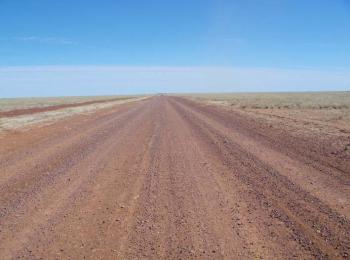
Given the broad scale and fundamental transformations occurring to the natural environment due to anthropogenic climate change in the present era, what does the future hold for Aboriginal people in remote arid regions of Australia? In searching for answers to this question, this study takes an interior arid-zone region, the Upper Georgina River Basin in northwest Queensland (Figure 1) as the focus for a scoping study in which to investigate and document Aboriginal perceptions and knowledge of climate change, and the capacity of regional communities to respond and adapt to such change at a number of levels; specifically anticipatory adaptation or preparedness for particular types of climate change, land and riverine management, housing and settlement adaptation as well as enterprise development opportunities arising from new forms of adaptation processes. Based on these findings, a set of Regional Climate Change Adaptation Planning principles and strategies has been generated. The relevance of aspects of this adaptation plan can be extrapolated for use in other arid zone regions where applicable. The study also analyses the implications for climate change adaptation policy relevant to Aboriginal communities at different jurisdictional levels, including across state and local government borders. This study takes an interior arid-zone region, the Upper Georgina River Basin area, as the focus forTo investigate and document Aboriginal perceptions and knowledge of climate change, and the capacity of regional communities to respond and adapt to such change at a number of levels.To investigate and document Aboriginal perceptions and knowledge of climate change, and the capacity of regional communities to respond and adapt to such change at a number of levels.pecifically preparedness for particular types of climate change, land and riverine management, housing and settlement adaptation as well as enterprise-building opportunities. Based on these findings, a set of Regional Climate Adaptation Planning goals, principles and strategies has been generated. The relevance of aspects of this Climate Adaptation Plan can be extrapolated for use in other arid zone regions where applicable. The implications for climate change policy at different jurisdictional levels (including across state and local government boundaries) are also analysed. The study was carried out by a multi-disciplinary team of researchers and local community and business personnel who are already engaged in research projects in the region, led by staff of the Aboriginal Environments Research Centre at University of Queensland and Myuma Pty Ltd, an Aboriginal enterprise and training organisation at Camooweal in north-west Queensland.